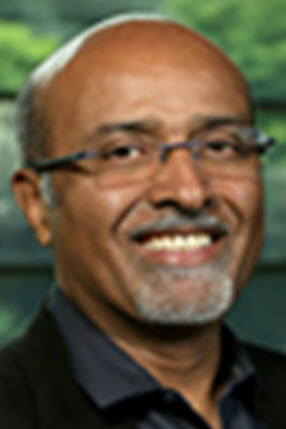Abstract
Excerpted From: Tayyab Mahmud, Postcolonial Imaginaries: Alternative Development or Alternatives to Development?, 9 Transnational Law & Contemporary Problems 25 (Spring, 1999) (25 Footnotes) (Full Document)
 The real voyage of discovery lies not in seeking new lands but in seeing with new eyes.
The real voyage of discovery lies not in seeking new lands but in seeing with new eyes.
The substantive concerns, methodological departures, ethical commitments, and implied prescriptions deployed by the authors in this collection of essays prove that the critical project is alive and well in the legal academy, and that critical race theory is no longer imprisoned within American history, constitutional design, or the black-white binary. A common goal among the writers is to explore the site of post-coloniality and uncover intersections of race, development, and the law. Chantal Thomas deploys tools of inquiry fashioned by critical race theory to examine the hegemony of the international economic legal order and Amy Chua focuses on the links between markets and ethnicity. The two papers deploy the categories of race, development, and post-coloniality on a global canvas. In this essay, I would like to bring the three categories closer in response to Chantal Thomas's challenge to apply tools of critique forged by critical race theory to interrogate development.
I submit that the categories of race, development, and post-coloniality are inescapably intertwined. The concept of post-coloniality rests on three interrelated propositions: (1) that the colonial and neo-colonial encounter between the West and “the rest” is the central and continuing formative feature of the modern world; (2) that this encounter is a relationship of domination; and (3) that this encounter constitutes both the West and “the rest.”
In the second half of the twentieth century, the idea of “development” operated as both a cognitive category and a relation of force, mapping the terrain of this encounter between the West and “the rest.” It is the glue that keeps “the rest” attached to the West. It is the latest variant of Europe's 500 year-old project variously referred to, at one time or another, as: saving native souls, the white man's burden, manifest destiny, the civilizing mission, or the historical imperative of progress. Development is not just a theory about economic growth and elimination of poverty, but an ideological and institutional device to consolidate the domination and hegemony of the West over the rest. Post-coloniality, then, may be conceptualized as an effect of, and a condition of subjection to, the development project, with the latter seen as a discursive structure, a disciplinary apparatus, an institutional modality, and a meta-theory of history whose genealogy is firmly rooted in the colonial encounter.
My submission is thecDevelopment defines a perceptual domain, colonizes reality, and produces subjectivities. Development is not only an ideological omni-historical reality, and the hegemonic discourse of post-coloniality; it is the primary instrument of cartography of postcolonial “imaginary.” As a full-service enterprise, with confident notions of time and space, of nature and culture, of society and individual, of the good and the truth, development is the primary mechanism through which particular parts of the world and particular subjects are produced and produce themselves, thus precluding other ways of imagining, seeing, and doing. Like imperialism, the development project entails “epistemic violence,” a violence against the other exercised by hegemonic systems of knowledge and a violence embedded in the constitutive function of such systems. As a result, even its critiques remain imprisoned within the imaginary of development, and can only speak of alternative development. I submit that a radical critique must move beyond the discourse of alternative development and begin to imagine alternatives to development.
[. . .]
Demarcation of subjectivities not defined by hegemonic discourse of development may well be the first task of social criticism and political activism on the road to imagining alternatives to development. We have to continually create and expand a space at the margins of the present neoliberal global civilization for a new, plural, political ecology of knowledge. The grammar of modernity has always demanded that the victim must learn and adopt the oppressor's language and worldview before qualifying as a proper dissenter. Consequently the resistance to the conceptual and discursive categories deployed to normalize and homogenize dissent is part of the struggle for survival. At different specific conjunctures this resistance has to adopt myriad forms. It may involve a rejection of modernity's deepest faith, instrumental rationality, and a subversion of modernity's cleverest enterprise and development--the race without a finishing line. Even though postcolonial imaginary is imprisoned by development, Edward Said, who alerted us to the constitutive and dominating power of Orientalism, also reminds us that “in human history there is always something beyond the reach of dominating systems, no matter how deeply they saturate society, and this is obviously what makes change possible.” Radical critique of development involves a project that must attempt a restructuring of the traditional perspectives, norms and assumptions that form the basis of Western thought. In order to do so, we must first “change the imaginary in order to be able to act on the real.” The post-colonial project of peace, justice, dignity and community rests on decolonization of imagination. As a first step we need to abandon the search for models of alternative development and start imagining alternatives to development.
Associate Professor of Law, Cleveland-Marshall College of Law, Cleveland State University.


